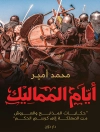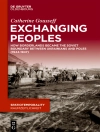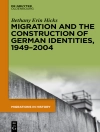The history of terrorism has been largely a history of perpetrators, their motives and actions. The history of their victims has always seemed to be of secondary importance. But terrorism is communication by violence, and its efficiency depends significantly on the selection and the treatment of the victims by the perpetrators, on the one hand, and the perception and acknowledgement of victimhood by the public, on the other. How does it affect our picture of the history of terrorism then, if the victims are moved centre stage? If the focus is put on their suffering, their agency, their helplessness, or on how they are acknowledged or exploited by society, politics and media? If the central role is taken into account which they play in terrorist propaganda as well as in the emotional response of the public? The contributions to this edition of the European History Yearbook will examine such questions in a broad range of historical case studies and methods, including visual history. Not least, they aim at historicizing the roles of survivors and relatives in the social process of coming to terms with terrorist violence, a question highly relevant up to the present day.
Tabella dei contenuti
European History Yearbook 19 (2018), Victimhood and Acknowledgement: The Other Side of Terrorism, ed. by Petra Terhoeven
Contents
Petra Terhoeven
The Other Side of Terrorism (Editorial)
Anke Hilbrenner
Students into ‘Bloodsuckers’ – The making of terrorist victims as historical perpetrators in prerevolutionary Russia
Marie Breen-Smyth
Suffering, victims and survivors in the Northern Ireland Conflict: definitions, policies and politics
Rogelio Alonso
[Victims of ETA – Title TBC]
Anna Cento Bull
Reconciliation through agonistic engagement? Victims and former perpetrators in dialogue in Italy several decades after terrorism
Tobias Ebbrecht-Hartmann
Beyond Heroism and Martyrdom. The forgotten victims from Entebbe
Martin Rupps
[The Landshut hostages – Title TBC]
Charlotte Klonk
In whose name? Visualising the victims of terror
Forum
Tillmann Lohse
[dt. Ein gescheitertes Migrationsregime? Zur Ikonologie der Völkerwanderungskarten am Beispiel des 21. Jahrhunderts]
Notes on Contributors
Circa l’autore
Petra Terhoeven, Georg-August-University Göttingen












